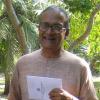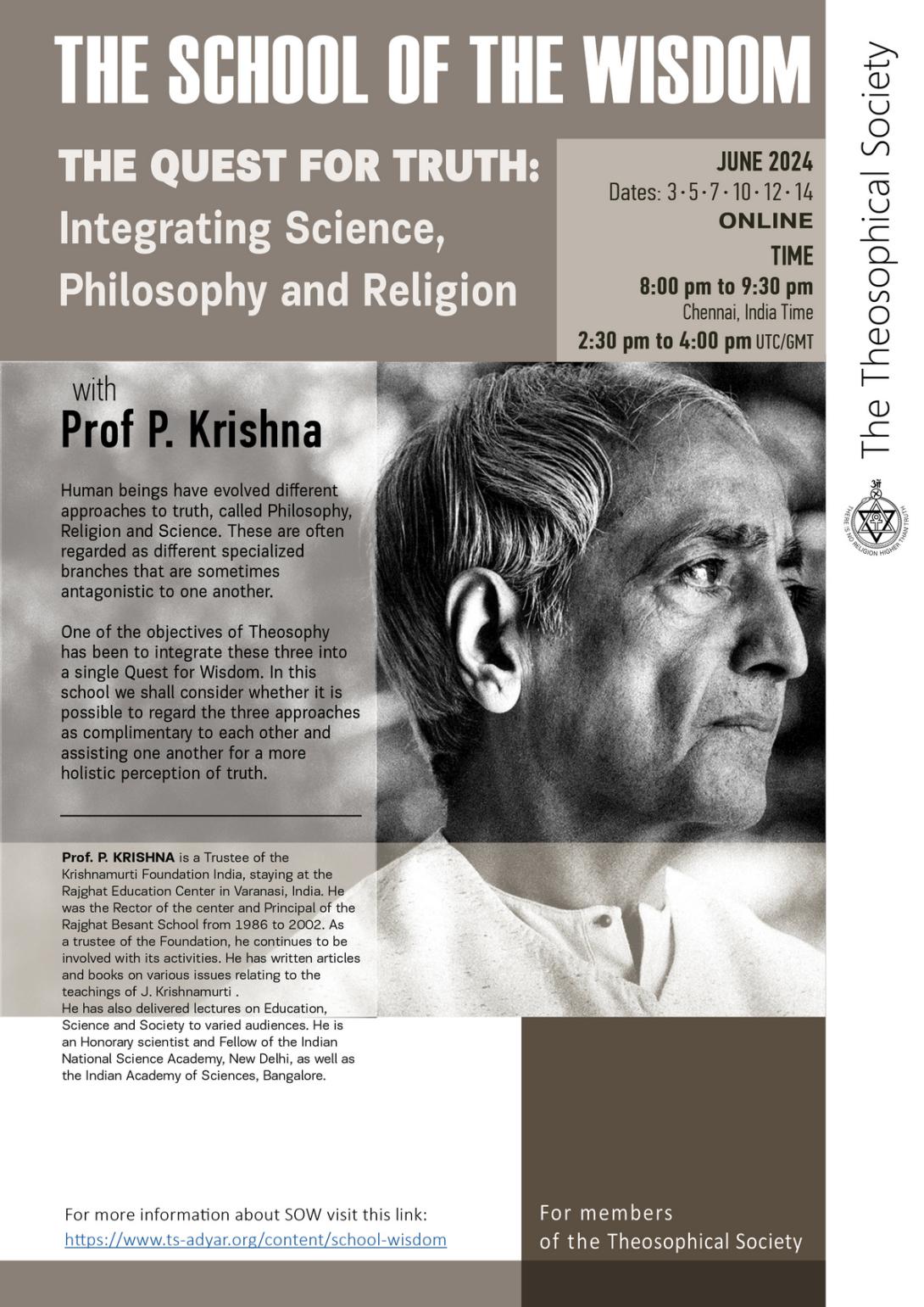Subject
Venue
Time (IST)
Event Speaker
Sign Up Link
Non-members will receive a payment link after fulfilling the application.
Event pdf
Content
ONLINE
DATES: June 3, 5, 7, 10, 12, 14, 2024
TIME 1.5 hours:
8.00 PM IST (India time),
2:30 PM UTC/GMT (Universal time)
check your local time
Introduction
Human beings have evolved different approaches to truth, called Philosophy, Religion and Science. These are often regarded as different specialized branches that are sometimes antagonistic to one another.
One of the objectives of Theosophy has been to integrate these three into a single Quest for Wisdom. In this school we shall consider whether it is possible to regard the three approaches as complimentary to each other and assisting one another for a more holistic perception of truth.
The word truth has been used with different meanings in different contexts. In Philosophy and Science, a statement is said to be true if it accurately describes a fact, the fact being something that exists independent of the observer. To ensure this Science relies on a method that involves guessing a model of reality and confirming through logic, mathematics and experiment the extent to which it approximates to reality. The ultimate reality is regarded as unknown, and one approaches it through successive approximations of the Model to reality. In Philosophy one begins with assumptions or axioms from which one makes logical deductions. These deductions are regarded as true relative to those axioms but there is no demand to confirm this with experiments in order to correspond to Nature. Philosophy includes the study of psychological causation and discussions on right living which is not a part of the basic sciences. The Physical sciences are still unclear what consciousness is and whether it is a product of matter.
Religion often includes faith and belief which Science and Philosophy do not accept as they are subjective, not universal. In Religion truth is an undistorted direct sensory perception of the fact by a consciousness which does not project anything into the observation. It ends any prior illusions held by the consciousness, thereby causing a transformation of the observer, leading him/her towards greater wisdom. There is very little wisdom in a mind that is out of touch with reality, living in an imaginary world of its own subjective thinking. Mrs. Annie Besant (1) called Theosophy the wisdom religion and stated, “Only well-trained and experienced seers will avoid the errors of looking at facts through a veil of their own thought forms.” The religious quest thus requires the investigator into truth to be free of desires and to have a silent mind.
There is no such requirement in Science or Philosophy. Scientists and Philosophers can be egoistic and still investigate what is truth.
We shall consider the strengths and limitations of each approach and investigate the possibility of integrating all three approaches into one single whole.
Recommended Readings:
Annie Besant. Adyar Pamphlet 36(1913). Quoted in P.Krishna's A jewel on a silver platter. Pilgrims, Varanasi 2015; lulu.com 2015 P.253.

